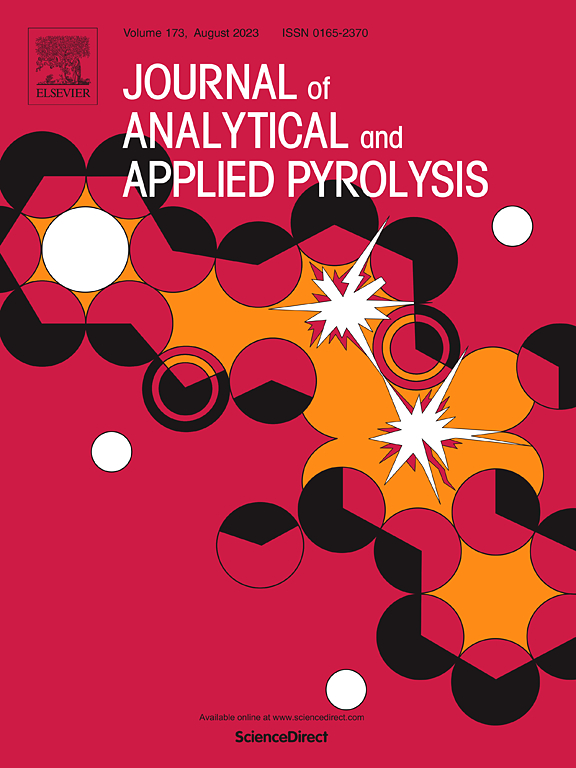揭示由废弃生物质制成的木醋在促进植物生长、生物胁迫耐受性和可持续农业方面的多重作用
IF 5.8
2区 化学
Q1 CHEMISTRY, ANALYTICAL
引用次数: 0
摘要
世界人口剧增,可持续农业实践对于实现零饥饿目标非常重要。农业部门一直面临着气候变化和抗杀虫剂病原菌出现所造成的严重问题。在这种情况下,最重要的生态友好型方法之一,如使用植物制成的生物产品,因其具有克服挑战的多种潜力而越来越具有吸引力。木醋(WV)或焦木质酸(PA)是一种液态生物材料,由木质生物质的热解过程产生,它被定义为一种红棕色的水状液体,在木材蒸馏过程中含有甲醇、乙酸、焦油和木油。PA 的生产及其在农业领域的应用最近引起了越来越多的关注,因为它们可以作为良好的生物刺激剂、生物农药和生物肥料。因此,它可能会为农业和食品生产打开一扇新颖、充满希望的窗口。PA 在提高种子发芽率和活力指数、植物生长、营养价值和作物产量等植物农艺活动方面具有重要作用。本综述旨在详细讨论以下内容:1) 木醋的成分及其生产系统;2) 利用 PA 工艺对种子进行催芽;3) 研究 PA 在植物生长促进活动中的作用、生物防治潜力及其在缓解生物胁迫方面的应用;4) 通过图解说明 PA 在抑制植物病害致病因子和促进植物免疫力方面的分子作用模式;5) 评估 PA 在土壤理化、生物和酶活性方面的作用及其对改善堆肥质量和减少温室气体排放的影响;6) PA 的不同优势和局限性,以及其使用和发展的未来前景。本文章由计算机程序翻译,如有差异,请以英文原文为准。
Unravelling the multifarious role of wood vinegar made from waste biomass in plant growth promotion, biotic stress tolerance, and sustainable agriculture
The population of the world has increased intensively, and sustainable agriculture practices are important in achieving the zero-hunger goal. The agriculture sector is constantly facing serious problems caused by climate change and the occurrence of pesticide-resistant causal agents. In this context, one of the most crucial eco-friendly approaches, e.g., using plant-derived bioproducts, is gaining more attraction because they have multifarious potential to overcome challenges. Wood vinegar (WV) or pyroligneous acid (PA) is a liquid biomaterial that is produced by the thermo-pyrolysis process of woody biomass and it was defined as a reddish-brown aqueous liquid that contains methanol, acetic acid, tars, and wood oils by the distillation process of woods. PA production and their application in agricultural fields, have attracted more attention recently because they may work as good bio-stimulants, biopesticides, and biofertilizers. Therefore, it may open a novel, promising window for agriculture and food production. PA has a significant role in elevating plant agronomic activities such as seed germination and vigor index, plant growth, nutritional value, and crop yields. This review aims to discuss in detail the following items: 1) The composition of wood vinegar and its production system; 2) Seed priming with the PA process; 3) Investigation of the role of PA in plant growth promotion activities, biocontrol potential, and its applications for alleviating biotic stresses; 4) Describe the molecular mode of action of PA in suppressing plant diseases causal agents and promoting plant immunity through a well-illustrated diagram; 5) Evaluation of PA role in soil physicochemical, biological, and enzymatic activities and its impact on improving compost quality and curtailing emissions of green house gasses; 6) PA different advantages and limitations, as well as future perspectives for its usage and development.
求助全文
通过发布文献求助,成功后即可免费获取论文全文。
去求助
来源期刊
CiteScore
9.10
自引率
11.70%
发文量
340
审稿时长
44 days
期刊介绍:
The Journal of Analytical and Applied Pyrolysis (JAAP) is devoted to the publication of papers dealing with innovative applications of pyrolysis processes, the characterization of products related to pyrolysis reactions, and investigations of reaction mechanism. To be considered by JAAP, a manuscript should present significant progress in these topics. The novelty must be satisfactorily argued in the cover letter. A manuscript with a cover letter to the editor not addressing the novelty is likely to be rejected without review.

 求助内容:
求助内容: 应助结果提醒方式:
应助结果提醒方式:


